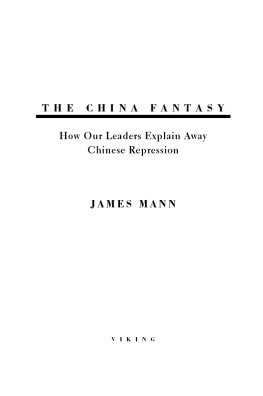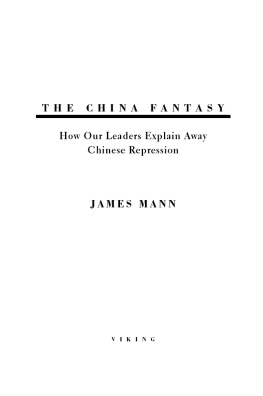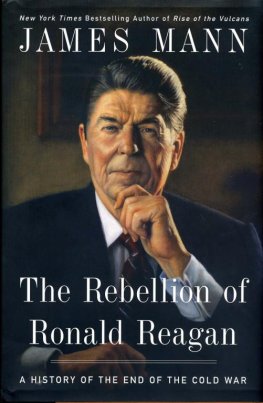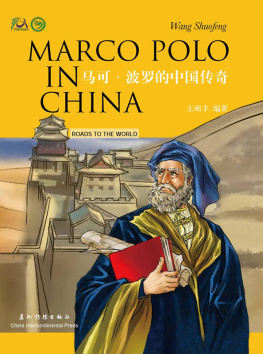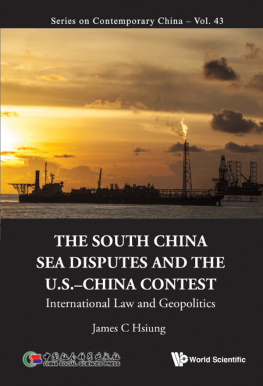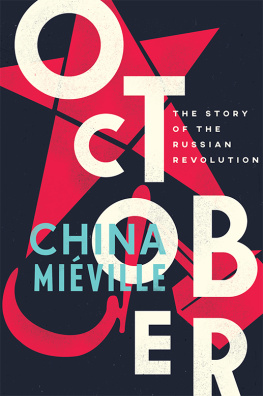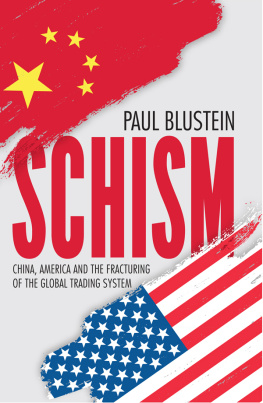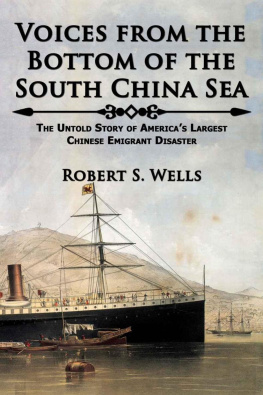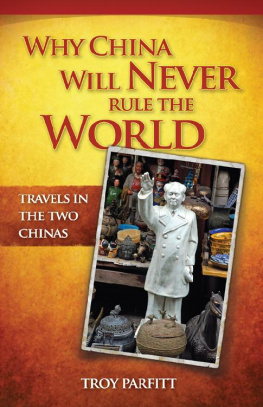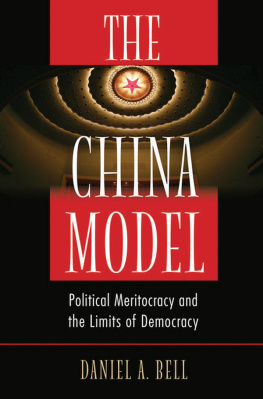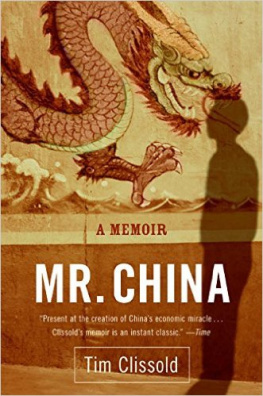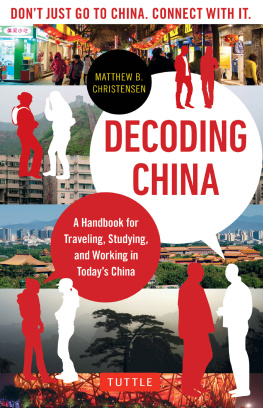THE CHINA FANTASY


ALSO BY JAMES MANN
Beijing Jeep:
A Case Study of Western Business in China
About Face:
A History of Americas Curious Relationship with China, from Nixon to Clinton
Rise of the Vulcans:
The History of Bushs War Cabinet
THE CHINA FANTASY

How Our Leaders Explain Away
Chinese Repression
JAMES MANN
VIKING
VIKING
Published by the Penguin Group
Penguin Group (USA) Inc., 375 Hudson Street, New York, New York 10014, U.S.A.
Penguin Group (Canada), 90 Eglinton Avenue East, Suite 700, Toronto,
Ontario, Canada M4P 2Y3 (a division of Pearson Penguin Canada Inc.)
Penguin Books Ltd, 80 Strand, London WC2R 0RL, England
Penguin Ireland, 25 St. Stephens Green, Dublin 2, Ireland (a division of Penguin Books Ltd)
Penguin Books Australia Ltd, 250 Camberwell Road, Camberwell, Victoria 3124, Australia (a division of Pearson Australia Group Pty Ltd)
Penguin Books India Pvt Ltd, 11 Community Centre, Panchsheel Park,
New Delhi-110 017, India
Penguin Group (NZ), Cnr Airborne and Rosedale Roads, Albany, Auckland 1310,
New Zealand (a division of Pearson New Zealand Ltd)
Penguin Books (South Africa) (Pty) Ltd, 24 Sturdee Avenue, Rosebank,
Johannesburg 2196, South Africa
Penguin Books Ltd, Registered Offices:
80 Strand, London WC2R 0RL, England
First published in 2007 by Viking Penguin,
a member of Penguin Group (USA) Inc.
10 9 8 7 6 5 4 3 2 1
Copyright James Mann, 2007
All rights reserved
ISBN: 978-1-101-20197-8
Printed in the United States of America
Set in Electra with Bodoni Bold Designed by Sabrina Bowers
Without limiting the rights under copyright reserved above, no part of this publication may be reproduced, stored in or introduced into a retrieval system, or transmitted, in any form or by any means (electronic, mechanical, photocopying, recording or otherwise), without the prior written permission of both the copyright owner and the above publisher of this book.
The scanning, uploading, and distribution of this book via the Internet or via any other means without the permission of the publisher is illegal and punishable by law. Please purchase only authorized electronic editions and do not participate in or encourage electronic piracy of copyrightable materials. Your support of the authors rights is appreciated.
This book is dedicated
to the memory of
Mike Jendrzejczyk,
who understood that
ending political repression in China
is a cause for
both liberals and conservatives,
both Republicans and Democrats,
and everyone else
INTRODUCTION:
EUPHEMIZING CHINA
This is not a book about China itself. It is about the China I have encountered outside of China. It is about the China of the elites, about the views of China that prevail in Washington and the other leading capitals of Europe and Asia and in corporate headquarters around the globe. It is about the language, images, hidden assumptions, and questionable logic that powerful peoplepoliticians, business executives, scholars, and diplomatsuse when they discuss modern-day China. Over many years, a collection of ideas, phrases, rationalizations, and doctrines has emerged, all of which serve to deflect attention from the persistence of Chinas one-party state and its repression of political dissent. One might think that the problems of Chinas political system would raise both moral questions and practical ones, but apparently they dont. The book seeks to explain why not, by scrutinizing the way our leaders think and talk about China.

Twenty years ago, after covering China as Beijing bureau chief for the Los Angeles Times, I returned to the newspapers Washington bureau. Editors asked me what I might be interested in covering now that I was back in Washington. America and Asia, I replied. They acted as if I were crazy. Thats not a full-time job, one editor told me; theres not enough to write about. It was late 1987, and back then virtually all of the U.S. State Department, Pentagon, and intelligence reporters in Washington were of necessity spending their time covering American policy toward the Soviet Union (then in the final years of the cold war) and the Middle East (then as now a mess).
No, really, I protested. Asia policy is worth covering in Washington. Honestly. Ive been living in China, and believe me, every week, sometimes every day, somethings coming out of Washington that is of great importance for Asia and its future. You just dont realize these things are happening, because none of Americas biggest newspapers is writing about them. Were the Los Angeles Times, the biggest paper of the western United States, and we should cover China more and better than our competitors.
And so, with my newspapers grudging assent, I began to follow Asia once again, particularly China, but from a different perspectivethis time not as a foreign correspondent living in Beijing, but as a Washington story, an American story. I started in the usual way, by covering the institutions that make China policythe State Department, the National Security Council, the Pentagon, and the CIA. I attended the obligatory congressional hearings. But I soon became interested in the larger question of how America develops its perceptions and ideas about China, and the newspaper allowed me the freedom to roam into these areas. I began to spend more time at the Washington think tanks, those peculiar institutions where some ideas are formulated and others are ignored when they dont serve the hidden financial or other interests that help determine the work of the think tanks. I ate too many lunches (usually catered sandwiches or tasteless chicken) listening to what people said about China at think tanks of various persuasions, from the liberal Brookings Institution and Carnegie Endowment for International Peace to the conservative American Enterprise Institute and Heritage Foundation and back again. I hung out at universities to get to know the academic China hands and their ideas. I began looking regularly at batches of newly declassified material about America and China and occasionally at old archives, too. I even sojourned a couple of times to the convention of the Association for Asian Studies, the annual academic gathering of scholars who specialize in Asia, to see what might happen there. (Answer: Not much. Many people schmooze and look for their next jobs, and a few brag about the ones they have.)
Meanwhile, history was breaking out everywhere. In 1989, Chinas Deng Xiaoping summoned the Peoples Liberation Army to Beijing and authorized it to use deadly force against Chinese citizens, thus bringing to a bloody end a nationwide wave of protests against the government. Later that year, when East German citizens staged comparable demonstrations, its government didnt shoot, because East German leaders, and, more important, Mikhail Gorbachev, refused to follow Deng Xiaopings example. The Berlin Wall was torn down and the Soviet Union dissolved. A few years later, Britain transferred sovereignty of Hong Kong back to China.

